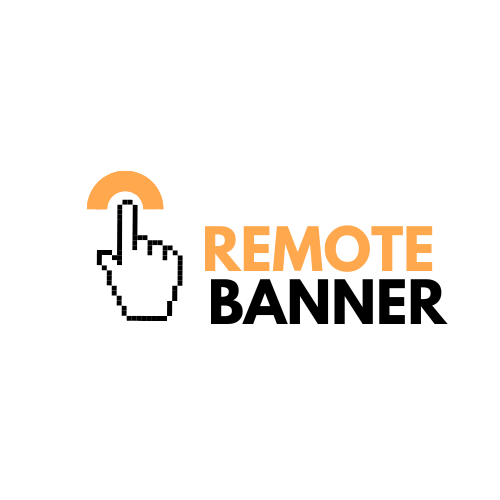
Expert Marketing Digital: Unlock Success in Today’s Online Landscape
In a world where cat videos reign supreme and social media influencers are the new rock stars, mastering digital marketing is no longer just a nice-to-have—it’s a must. Businesses are scrambling to grab attention in the vast online jungle, and without expert guidance, they risk getting lost in the weeds.
Expert Marketing Digital
Expert marketing digital refers to the strategic use of digital channels to achieve specific business goals. It incorporates various online platforms like social media, search engines, and websites to reach target audiences effectively. Companies engage digital marketing experts to create data-driven campaigns that drive customer engagement and conversion.
Expert marketing digital encompasses search engine optimization (SEO), which enhances website visibility. It utilizes pay-per-click (PPC) advertising to drive immediate traffic. Email marketing campaigns serve to maintain customer relationships and promote brand loyalty. Social media marketing focuses on building communities around brands and initiating conversations that foster customer attachment.
Analytics tools become vital for measuring campaign performance. These technologies allow businesses to track user behaviors and social interactions. By analyzing this data, companies refine their strategies to maximize ROI. Effective content marketing plays a crucial role, ensuring that businesses deliver valuable and relevant information to their audiences.
In today’s fast-paced digital landscape, expert guidance is essential. Navigating multiple platforms demands in-depth knowledge and the ability to adapt quickly to changing trends. Investing in expert marketing digital equips brands with the necessary skills to stand out. Overall, businesses that leverage expert marketing digital gain a competitive edge in the crowded online space.
Key Components of Expert Marketing Digital

Expert marketing digital encompasses several crucial components that drive successful online campaigns. Businesses utilize these elements to improve visibility, engagement, and conversion rates.
Content Strategy
Content strategy involves planning, creation, and management of digital content. It aligns with business goals and addresses target audience needs. Consistent blog posts, infographics, and videos help engage users and build trust. Audience research aids in crafting relevant topics that resonate. Additionally, updating content regularly keeps it fresh and enhances SEO value.
Search Engine Optimization
Search engine optimization (SEO) enhances online visibility and drives organic traffic. Effective keyword research identifies relevant terms that potential customers search for. On-page optimization includes refining title tags, meta descriptions, and headers for better clarity. Backlinks from authoritative websites strengthen credibility and authority. Regularly monitoring and adjusting SEO efforts based on analytics ensures ongoing success.
Social Media Marketing
Social media marketing creates brand awareness and fosters community engagement. Through tailored content, brands connect with audiences on platforms like Facebook, Twitter, and Instagram. Posting consistently encourages interaction and customer loyalty. Running targeted ad campaigns amplifies reach and attracts new followers. Analytics tools provide insights into user behavior, allowing for strategy adjustments and improved results.
Benefits of Expert Marketing Digital
Expert marketing digital enhances brand visibility across multiple online channels. Improved search engine optimization (SEO) practices significantly boost organic traffic and lead generation. Data-driven decision-making fosters effective campaigns that resonate with targeted audiences.
Increased customer engagement yields higher conversion rates. They can cultivate stronger relationships through tailored email marketing strategies that keep consumers informed. Social media platforms serve as vital tools for building brand communities, allowing for direct interaction with customers.
Utilizing pay-per-click (PPC) advertising brings immediate traffic and potential sales growth. Brands can achieve measurable results through analytics tools, making it easier to assess campaign performance and refine strategies. Effective content strategies create valuable resources that not only attract users but also establish trust and authority.
Expertise in digital marketing ensures that campaigns align with the latest trends and technologies. Understanding user behavior allows marketers to create personalized experiences that enhance satisfaction. Comprehensive market analysis aids in identifying gaps and opportunities within the competitive landscape.
Investing in expert marketing digital provides businesses with the competitive edge they need. Gaining insights into industry best practices positions them effectively, allowing for smarter resource allocation and maximized return on investment. Enhanced credibility results from consistently delivering valuable content that meets audience needs.
Overall, expert marketing digital drives strategic growth by combining various elements to deliver cohesive and impactful campaigns.
Common Challenges in Implementing Expert Marketing Digital
Implementing expert marketing digital involves many challenges. One significant hurdle is integrating various digital channels into a cohesive strategy. Companies may struggle to align their social media, SEO, email marketing, and PPC efforts, leading to inconsistent messaging.
Another challenge involves keeping up with rapidly evolving digital trends. Staying current with algorithm changes, emerging platforms, and evolving consumer behaviors can overwhelm businesses lacking adequate resources. Constantly updating tactics to optimize campaigns requires dedicated efforts that smaller teams often find difficult to manage.
Data analysis poses yet another obstacle. While analytics tools provide valuable insights, interpreting data effectively remains a challenge for many marketers. Companies frequently miss opportunities to refine their strategies due to inadequate understanding of key metrics and user behavior patterns.
Budget constraints also factor into the implementation of expert marketing digital. Restrictions on financial resources can limit advertising spend and the adoption of advanced tools. Without sufficient investment, achieving desired outcomes and reaching target audiences becomes significantly more challenging.
Moreover, building a skilled team creates additional complications. Professional expertise in digital marketing may be scarce, making recruitment difficult. Organizations may find themselves competing for talent, leading to prolonged hiring processes or reliance on external consultants.
Lastly, measuring return on investment (ROI) continues to be problematic. Companies often grapple with linking marketing efforts to tangible business outcomes. Establishing clear performance indicators remains essential for understanding the effectiveness of campaigns and justifying marketing expenditures.
Tools and Resources for Success
Effective expert marketing digital relies on several essential tools and resources. Analytics platforms play a pivotal role in understanding user behavior and optimizing campaigns. Google Analytics, for instance, provides insights on website traffic, user demographics, and conversion rates. This data aids in refining strategies for maximum impact.
Content management systems (CMS) also streamline the creation and management of digital content. WordPress offers user-friendly interfaces and customizable options, making it ideal for businesses to publish engaging content. Quality content not only attracts attention but also builds trust with audiences.
Search engine optimization tools assist in improving online visibility. Moz and SEMrush provide keyword analysis and competitor insights that help businesses rank higher in search results. Higher search rankings significantly enhance organic traffic levels.
Email marketing platforms, such as Mailchimp and Constant Contact, enable targeted communication with customers. Segmenting lists allows businesses to tailor messages to specific audience segments, improving engagement rates and driving conversions.
Social media management tools like Hootsuite and Buffer simplify managing multiple platforms. Scheduling posts across various networks ensures consistent brand messaging. These tools also offer analytics to gauge engagement and optimize future content.
Pay-per-click advertising platforms, particularly Google Ads, deliver immediate website traffic and visibility. Setting clear goals for PPC campaigns ensures alignment between budget and audience engagement.
Resources like webinars, online courses, and industry blogs also provide ongoing education in digital marketing. Platforms such as HubSpot Academy offer valuable resources for marketers to stay updated with the latest trends and strategies.
Investing in the right tools and resources significantly contributes to the success of expert marketing digital, fostering brand growth and enhanced customer engagement.
Conclusion
Mastering expert marketing digital isn’t just an option; it’s a necessity for businesses aiming to thrive in the competitive online landscape. By leveraging diverse digital channels and data-driven strategies, companies can enhance their visibility and foster meaningful customer relationships.
The integration of SEO, PPC, and social media marketing creates a robust framework for driving engagement and conversions. Utilizing analytics tools ensures that businesses can adapt and refine their tactics based on real-time data, maximizing return on investment.
Ultimately, embracing expert marketing digital leads to smarter resource allocation and improved brand credibility, positioning companies for sustained success in an ever-evolving digital world.



